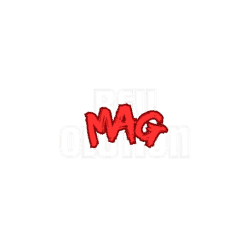Views: 71
Washington, DC — On the witness stand for the third consecutive day, Meta CEO Mark Zuckerberg defended his company’s high-profile acquisitions of WhatsApp and Instagram, arguing they weren’t strategies to kill competition, but visionary moves that helped shape the future of online communication.
In a historic Federal Trade Commission antitrust trial, the U.S. government is attempting to unwind Meta’s acquisitions of the two apps, alleging they were bought to eliminate competition. Zuckerberg, however, portrayed the deals as transformational investments — not anti-competitive tactics.
“I’d do it again,” he said with a smile when asked if he was happy about paying $19 billion for WhatsApp in 2014.
🟢 WhatsApp: A Bet on the Future of Private Messaging
The FTC argued that Meta acquired WhatsApp out of fear that private messaging apps would evolve into full-scale social media rivals. Zuckerberg admitted the thought crossed his mind but emphasized that WhatsApp’s co-founders, Jan Koum and Brian Acton, showed little interest in building a social media business.
“It was hard to express the disdain they had for social media and advertising,” Zuckerberg testified.
Instead, he claimed it was Meta that pushed for features like Stories and gradual monetization. Today, WhatsApp has nearly 3 billion users and generates $10 billion annually through ads that drive business interactions across Meta platforms.
📸 Instagram: From 10 Million Users to 2 Billion
Instagram’s acquisition in 2012 for $1 billion is central to the FTC’s claim that Meta used a “catch-and-kill” strategy to remove potential rivals. Internal emails suggest Zuckerberg aimed to “neutralize” the photo-sharing app.
But from the stand, Zuckerberg countered that Instagram was barely a threat when acquired. It had 10 million users and lacked operational infrastructure. With Meta’s backing, Instagram quickly scaled up, hitting 2 billion users today.
“It’s extremely unlikely it would have succeeded to this extent on its own,” Zuckerberg said.
🗣️ Internal Tensions and Strategic Shifts
Zuckerberg acknowledged tensions with Instagram’s founders, Kevin Systrom and Mike Krieger, who eventually left Meta after disagreements about the app’s independence. Still, he emphasized the resources Meta invested in growing the platform and fighting spam.
He also revealed that part of WhatsApp’s strategic value was as leverage against Apple and Google, the gatekeepers of Meta’s mobile app distribution.
“We’re always worried about them messing with us,” he said, referencing their control over app stores.
💬 Sandberg: “I Think I Was Wrong”
Former COO Sheryl Sandberg also testified, acknowledging that she initially believed Meta overpaid for Instagram.
“I think I was wrong. Like, very wrong,” she admitted.
🧠 Final Takeaway
Zuckerberg’s testimony painted a picture of visionary leadership, not monopolistic intent. Whether the court agrees remains to be seen, but the numbers speak volumes: two apps, once fledgling startups, now cornerstones of Meta’s global empire.

